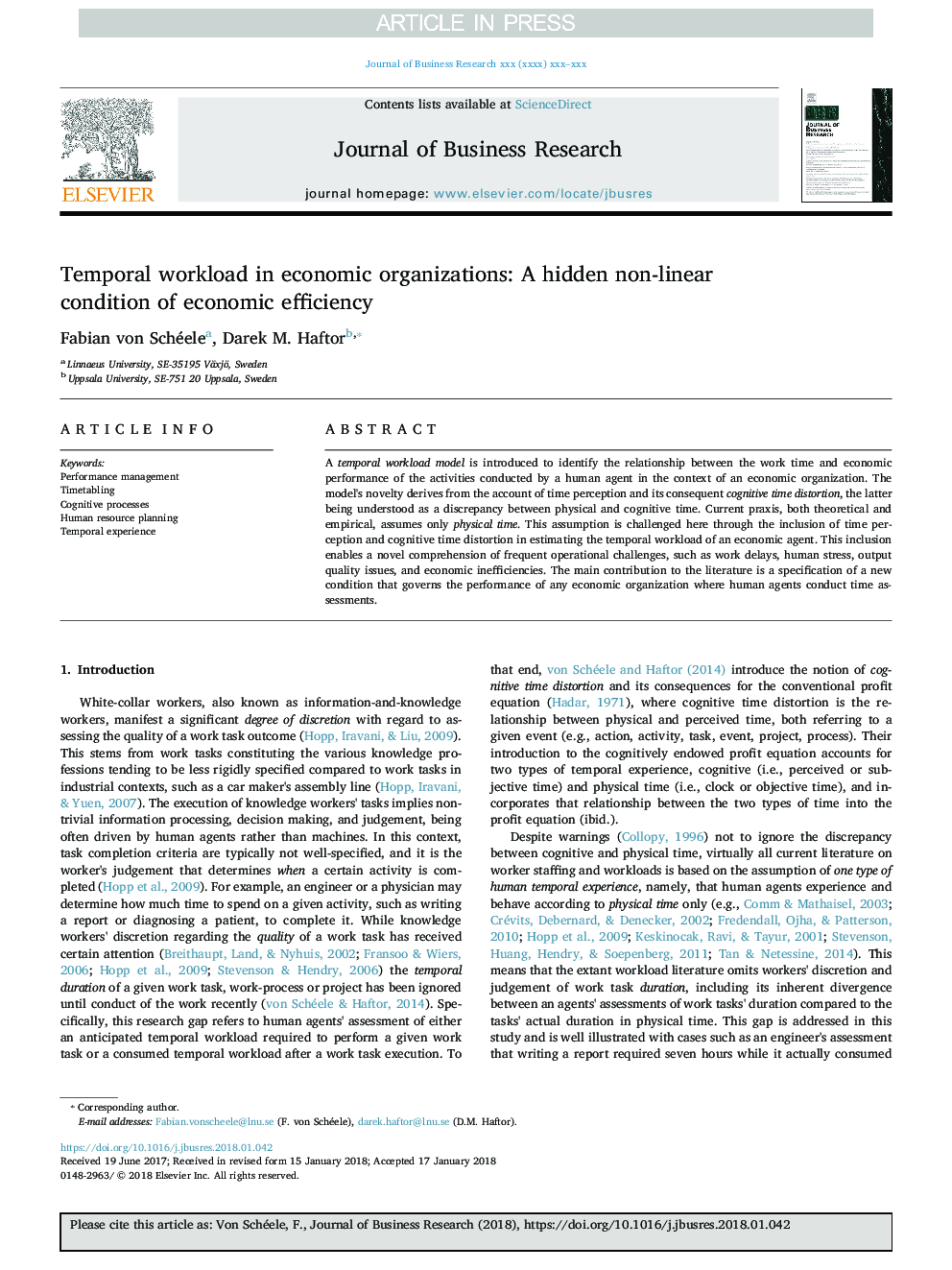| Article ID | Journal | Published Year | Pages | File Type |
|---|---|---|---|---|
| 7425022 | Journal of Business Research | 2018 | 6 Pages |
Abstract
A temporal workload model is introduced to identify the relationship between the work time and economic performance of the activities conducted by a human agent in the context of an economic organization. The model's novelty derives from the account of time perception and its consequent cognitive time distortion, the latter being understood as a discrepancy between physical and cognitive time. Current praxis, both theoretical and empirical, assumes only physical time. This assumption is challenged here through the inclusion of time perception and cognitive time distortion in estimating the temporal workload of an economic agent. This inclusion enables a novel comprehension of frequent operational challenges, such as work delays, human stress, output quality issues, and economic inefficiencies. The main contribution to the literature is a specification of a new condition that governs the performance of any economic organization where human agents conduct time assessments.
Related Topics
Social Sciences and Humanities
Business, Management and Accounting
Business and International Management
Authors
Fabian von Schéele, Darek M. Haftor,
